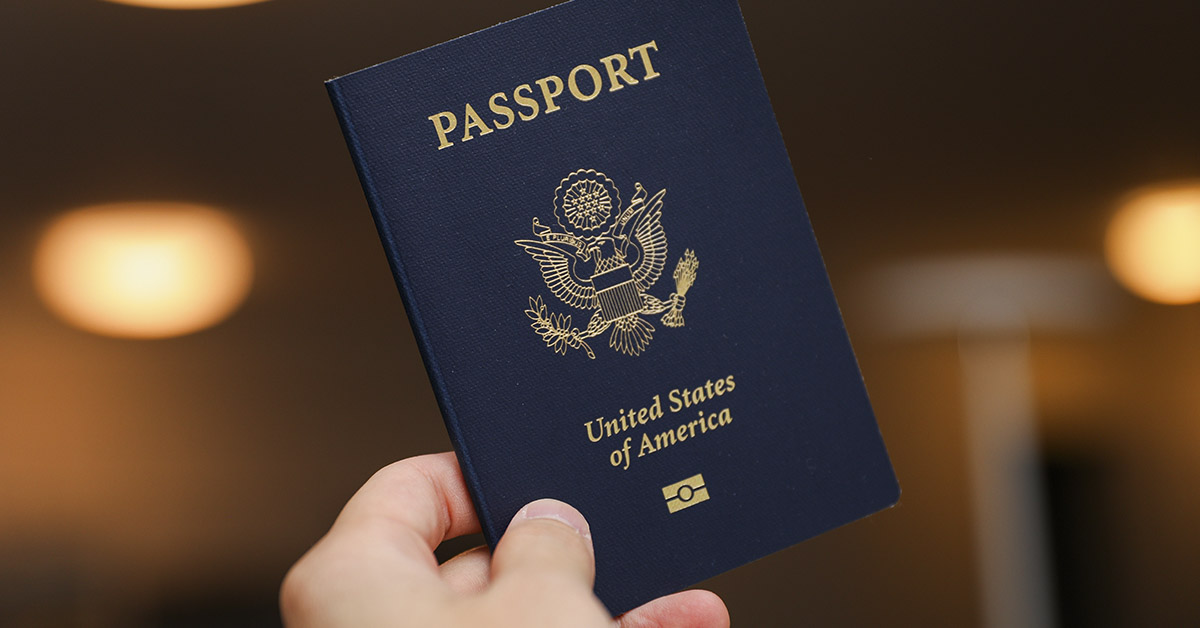Travel can get tricky when entry requirements shift, and the U.S. passport new entry rules can certainly be classified as “tricky.” In 2025, several countries are updating their rules for travelers holding U.S. passports. Whether it’s visa changes, health mandates, or new document demands, staying informed is key. These changes affect how Americans plan trips, prepare paperwork, and navigate borders. Understanding the latest travel regulations for Americans can save time and stress. In this article, we’ll cover 14 countries where U.S. passport holders should expect new entry rules. This guide helps you know what to expect and how to get ready for your next adventure.
1. Canada

Canada remains a favorite destination for U.S. travelers, and in 2025, entry procedures continue to evolve- with a focus on convenience rather than new restrictions. While U.S. passport holders do not need an Electronic Travel Authorization (eTA) or visa to enter Canada if they arrive by land or sea, the country has expanded use of its ArriveCAN app beyond its original COVID-19 purpose. For air travel, U.S. citizens do need an Electronic Travel Authorization (eTA). The eTA is electronically linked to the passport and is required for all air travelers except those with a valid Canadian visa.
Now, travelers flying into major Canadian airports can use the optional Advance Declaration feature in the ArriveCAN app. This allows them to submit customs and immigration information up to 72 hours before arrival. After submission, travelers receive a receipt to present to border officers, helping speed up processing times. This feature is not mandatory, and U.S. citizens arriving by land or air can still complete customs declarations upon arrival.
2. Mexico

In 2025, Mexico continues to welcome U.S. tourists without a visa for stays up to 180 days. The requirement for the Multiple Immigration Form (FMM) has been waived for air travelers arriving at major international airports, including Mexico City, Cancún, and Los Cabos. However, travelers entering by land or through other airports may still need to complete the FMM, which can be done online prior to arrival. It’s advisable to carry proof of accommodation and a return or onward ticket, as immigration officials may request them upon entry.
3. Australia

Australia is trialing a digital incoming passenger card, allowing travelers to submit customs and immigration information online up to 72 hours before arrival. This initiative aims to streamline the entry process and enhance biosecurity measures. Currently, the trial is underway at Brisbane Airport, with plans to expand to other airports. U.S. travelers are encouraged to check the latest requirements and consider completing the digital declaration to facilitate a smoother arrival experience.
4. Japan

Japan has plans to start using its JeSTA system in 2028 or sooner. This is an online registration system for travelers, requiring U.S. visitors to register before arrival. The system collects biometric data and travel history to expedite immigration processing. Additionally, depending on the global health situation, proof of COVID-19 vaccination or a recent negative test may be required. COVID-19 requirements may change; proof of vaccination or negative test is no longer mandatory as of early 2025, but that does not mean it won’t be requested.
5. United Kingdom

Starting January 8, 2025, U.S. travelers to the United Kingdom must obtain an Electronic Travel Authorization (ETA) before entry. The ETA is valid for two years and allows multiple entries for stays up to six months. Applicants need a valid passport, a recent photograph, and must pay a fee of £10. The application can be completed online or via the UK ETA app, with decisions typically made within three working days. It’s essential to apply well in advance of travel to ensure timely approval. Staying updated on these changes will help travelers avoid surprises and enjoy smoother journeys.
6. France

Planned to begin in 2025 but now postponed till 2026, U.S. travelers heading to France must apply for the European Travel Information and Authorization System (ETIAS) before arrival. Though not a visa, ETIAS is a mandatory pre-travel screening for Americans visiting any Schengen Area country. The application includes a small fee and typically takes only minutes to process. Once approved, the ETIAS is valid for up to three years. Travelers should apply before booking flights to avoid delays. This new system enhances EU border security and helps monitor short-term visitors. ETIAS will be required even for brief tourist or business stays.
7. Brazil

Beginning April 10, 2025, Brazil will reinstate travel regulations for Americans. These consist of visa requirements for U.S. passport holders entering for tourism, business, or cultural purposes. Americans will need to apply online for an e-visa prior to departure, which includes a small fee and processing time. The visa will allow stays of up to 90 days and is typically valid for two years. Brazil paused visa requirements in 2019 but is reintroducing them to restore reciprocity. Travelers should apply well in advance to avoid entry issues. Proof of yellow fever vaccination is also required if traveling from at-risk countries or visiting certain regions. Knowing the latest rules empowers visitors to prepare well and respect each country’s travel policies.
8. South Africa

In 2025, U.S. passport new entry rules for South Africa remain straightforward. The country does has plans to implement a streamlined e-visa system that U.S. passport holders can use prior to arrival, however that has not been put into use as of yet. The e-visa will allow travelers to submit their applications, passport details, and travel plans online, making the entry process faster and more secure. While South Africa is exploring digital border management improvements, a mandatory e-visa system for Americans is not yet in effect. COVID-19 health requirements, such as proof of vaccination or testing, have been lifted, making travel smoother. Staying updated on South Africa’s entry rules helps travelers avoid surprises. Knowing the latest U.S. passport new entry rules ensures hassle-free trips and better planning for your visit to this vibrant destination.
Read More: U.S. Government Expands ‘Do Not Travel’ List to 21 Nations
9. United Arab Emirates

As of 2025, U.S. travelers visiting the United Arab Emirates will still be eligible for a free 30-day visa on arrival. However, authorities are introducing an optional pre-clearance system to simplify border entry. The optional pre-clearance system called the “Advance Passenger Processing (APP).” This digital platform allows travelers to submit identification details, flight information, and accommodation plans before departure, helping reduce wait times at busy airports like Dubai and Abu Dhabi. Although not mandatory, using the system can speed up your arrival process. Health checks remain minimal, but travelers should stay updated on entry guidelines, especially during major events or seasonal health concerns.
10. Thailand

Thailand is introducing an electronic travel authorization (ETA) system for U.S. travelers in 2025. Although Americans currently enjoy visa-free access for up to 30 days, the new process will require pre-travel registration through an online portal. This step includes entering passport information, flight details, and accommodation bookings. Travelers may also need to provide proof of COVID-19 vaccination or recent negative test results depending on health policies in place at the time. These measures aim to enhance security while ensuring a smoother border experience. Applying ahead of time is strongly recommended to avoid airport delays or denied entry. Understanding and adhering to travel regulations for Americans is key to seamless travel and preserving destination integrity.
11. Bahamas

As of 2025, The Bahamas does not have a full Electronic Travel Authorization (ETA) program like some countries, but certain travelers must obtain visas or electronic visas before entry. Citizens of countries requiring a visa must apply for a Bahamas Electronic Entry Visa (EEV). This system was introduced to improve border security and streamline immigration by collecting traveler information digitally ahead of arrival. Tourism remains crucial to The Bahamas’ economy, supporting many jobs. However, the islands face challenges like overcrowding in peak seasons and environmental strain. The EEV helps manage visitor flow while protecting both the environment and residents’ quality of life. This approach fits within a wider Caribbean trend toward smarter, safer travel management without restricting tourism.
12. South Korea

Starting in 2025, U.S. passport holders visiting South Korea must obtain an electronic travel authorization before arrival, as part of the Korea Electronic Travel Authorization (K-ETA) system. This pre-approval process is mandatory and helps enhance security and immigration efficiency. South Korea, popular for its culture, technology hubs, and historic sites, experiences occasional concerns about overtourism, particularly in Seoul and Jeju Island. The K-ETA aims to regulate visitor flows, reducing overcrowding while maintaining a welcoming tourism environment. This system is part of South Korea’s broader efforts to strengthen border control and improve the travel experience.
13. Turkey

Turkey has required U.S. citizens to obtain an electronic visa (e-Visa) prior to travel for several years, with no major changes planned for 2025. However, the country has tightened its e-Visa requirements for American travelers. Applicants must now complete the process at least 48 hours before departure, with additional steps including uploading a recent passport photo, sharing detailed lodging information, and answering security-related questions. While the application process has become more thorough, the e-Visa fee remains unchanged at $50 and is payable by credit card. The e-Visa system remains a convenient tool balancing border security with ease of access for tourists.
14. Portugal

Portugal will implement the European ETIAS travel authorization system starting in mid-2025 for U.S. visitors. This new pre-travel authorization, required for all Schengen Area countries, is intended to boost security and streamline border processing. Tourism is a major part of Portugal’s economy, especially in cities like Lisbon and Porto, which have experienced overtourism concerns such as crowded streets and pressure on public services. ETIAS allows authorities to better monitor short-term visitors and manage tourism flows while preserving visitor experience and residents’ quality of life. Adapting to these new entry protocols promotes respectful visits and helps destinations manage visitor flow effectively.
Conclusion

As 2025 approaches, U.S. passport holders planning international travel should be aware of the evolving entry requirements across various destinations. Countries across the globe are implementing measures such as electronic travel authorizations, special permits, and sustainable development fees to manage tourism effectively. These changes reflect a global trend towards balancing the economic benefits of tourism with the need to preserve cultural heritage and protect the environment. Travelers are advised to stay informed about these new regulations and plan their trips accordingly to ensure compliance and contribute to sustainable tourism practices.
Read More: 5 Countries Making It Harder for Americans to Live and Work Abroad

